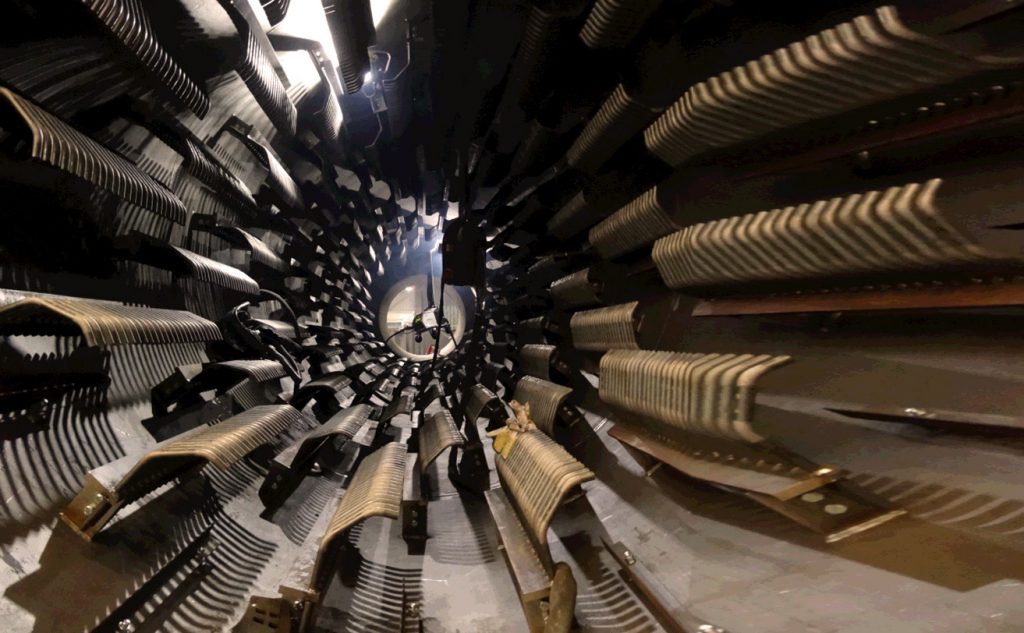Rotary Dryer
Process
The rotary dryer also known as the tumbling dryer employed to reduce the moisture content of the feed materials by providing direct heat transfer from the heat mediums like steam or heated gases. Consisting of a large cylindrical drum with flights or lifters; rotated slowly upon bearings due to which the material travels in con or counter current of the heating medium.

The feed material is feed into the cylindrical dryer (depending on product requirement) we would select a direct or an indirect dryer.

Heat is provided to the dryer either directly inside or indirectly through an outer stationary jacket of the dryer.

Due to the inclination of the dryer, the material is allowed to travel throughout the length of the dryer. It is catalysed by the flights fitted in the inner periphery of the dryer as the dryer rotates on the outer gear wheel device attached.
Working principle

The feed material and the heating medium flow in con or counter current in order for heat transfer and drying.

There are condensate collection points in the dryer which allow to collect any condensate from the dryer and return it to the furnace.

There is also an air vent that allows for the air to exhaust from the dryer and can be treated further if required.

The dried material is discharged from the tail end of the dryer and can be collected and stored according to the client’s requirements.
This Is Why
We Should Use Rotary Dryer
Less Sensitive to Particle Sizes
Can handle varying feed materials, ranging from minerals and ores to sludge.
Consistency
Can accept the highest flue gases of any type of dryer. High temperature and high volumes can be passed through the dryer.
Low Maintenance
Low maintenance cost due to a very sturdy manufacturing and design. Thus, low economical cost.

Capacity
Largest capacity dryers of any kind.
Flexibility
Design flexibility available for size, type and kind for varying feed requirements.

